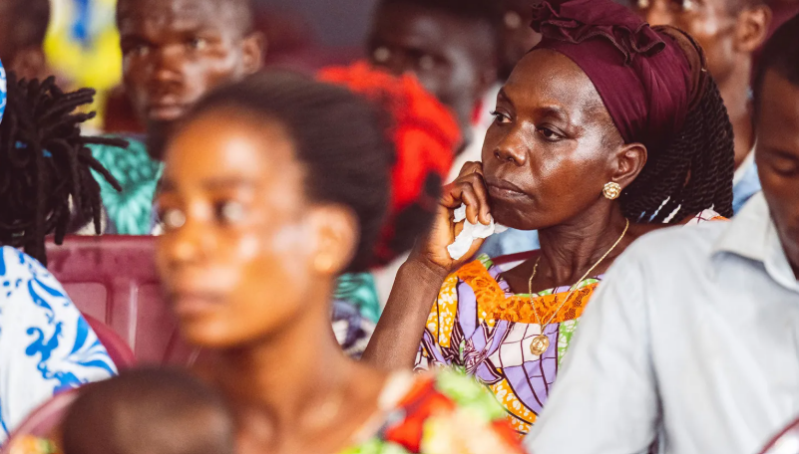
The Jesus Film Project, a ministry of Cru based in Orlando, Florida, has reached a major milestone with the 2,200th language translation of the Jesus film. The latest version was released in Bouna, a dialect of the Kulango language spoken in Côte d’Ivoire in West Africa.
The announcement, made March 28, marks a new chapter for the film project, which began in 1979. According to the organization, the Jesus film has been shown in nearly every country, offering opportunities to present the gospel in people’s native languages and helping fulfill the Great Commission.
The film was previously recognized as the most translated film in the world, having surpassed 817 translations in July 2012.
“To this day, it remains the world’s most translated film,” the press release noted.
“The story of Jesus has never been more relevant, or accessible than it is right now, and it’s about to reach every last corner on earth,” said Josh Newell, executive director of Jesus Film Project.
“There are some estimates that there are billions of people today who have never heard of Jesus. And I’m here to tell you that there is a plan to reach everyone, everywhere in the next decade.”
Newell and his wife, Holly, first traveled to Burkina Faso, which borders Côte d’Ivoire, 25 years ago and witnessed the early impact of the gospel through the Jesus film.
“On our final day, our guide, a local Bible translator, took us to the outskirts of town and together we climbed up a dusty hill beyond where any roads could take us,” Holly Newell said. “‘Look at the land beyond,’ she said. ‘I cannot cross the border and go to those villages, and learn their language. Will you pray with me that one day God will reach those villages?’”
The couple prayed with the guide but “never could have imagined what God had in store,” the press release said. That “land beyond” is now home to about 300,000 Kulango speakers.
“And that’s what this mission is all about,” said Josh Newell. “We’re about presenting Jesus to everyone, everywhere, so that they can truly follow Him and call others to do the same.”
One voice actor who worked on the Bouna translation—unnamed in the release but identified as a government employee—expressed his excitement in participating in translating the film into his own heart language for his people.
“When you are communicating with a person in the trade language … it is reaching their mind,” he reportedly said. “When I am listening and speaking in my own language, it is reaching my heart.”
According to the ministry, only a small percentage of the Bouna Kulango population are Christians, with most following traditional ethnic religions. The visual nature of the Jesus film is especially valuable in this context, as many in the community are illiterate.
A premiere of the Bouna version is planned by local ministry workers, along with additional showings in the area in the near future.
Technology has accelerated the pace of translations and recordings of the Jesus film across the world. It took 32 years to reach 1,000 language versions, but only 10 years to double that figure, thanks to technological advances.
Translation and recording work are carried out by the Jesus Film Project in partnership with local churches, organizations and volunteers who serve as voice actors, coaches, dialogue directors and review committee members.
The project originated in the 1950s with Bill Bright, founder of Cru (formerly Campus Crusade for Christ), who envisioned a film on Jesus’ life. Cru evangelism strategist Paul Eshleman helped realize that vision in partnership with Warner Bros., and later launched the Jesus Film Project to use the film for global outreach.
In a Cru blog post, Jennifer Eshleman Huff—communication coordinator for Cru ministry her.BIBLE and daughter of Paul Eshleman, who died May 24, 2023—reflected on her father’s legacy.
“This mission to share the gospel with the world through film was a vision my father deeply believed in and dedicated his life to fulfilling. Just as the Shepherd leaves the 99 to search for the one lost sheep (Matthew 18:12), my father believed everyone deserved to hear about Jesus in a way that speaks directly to their hearts.”
“As we celebrate the 2,200th language of the Jesus film, it’s clear that the mission is far from over,” she added. “My father often carried lists of unreached people groups, asking, ‘Who are we missing? How can we reach them?’ He believed deeply in the urgency of the Great Commission and often reminded us that every person matters to God.”





